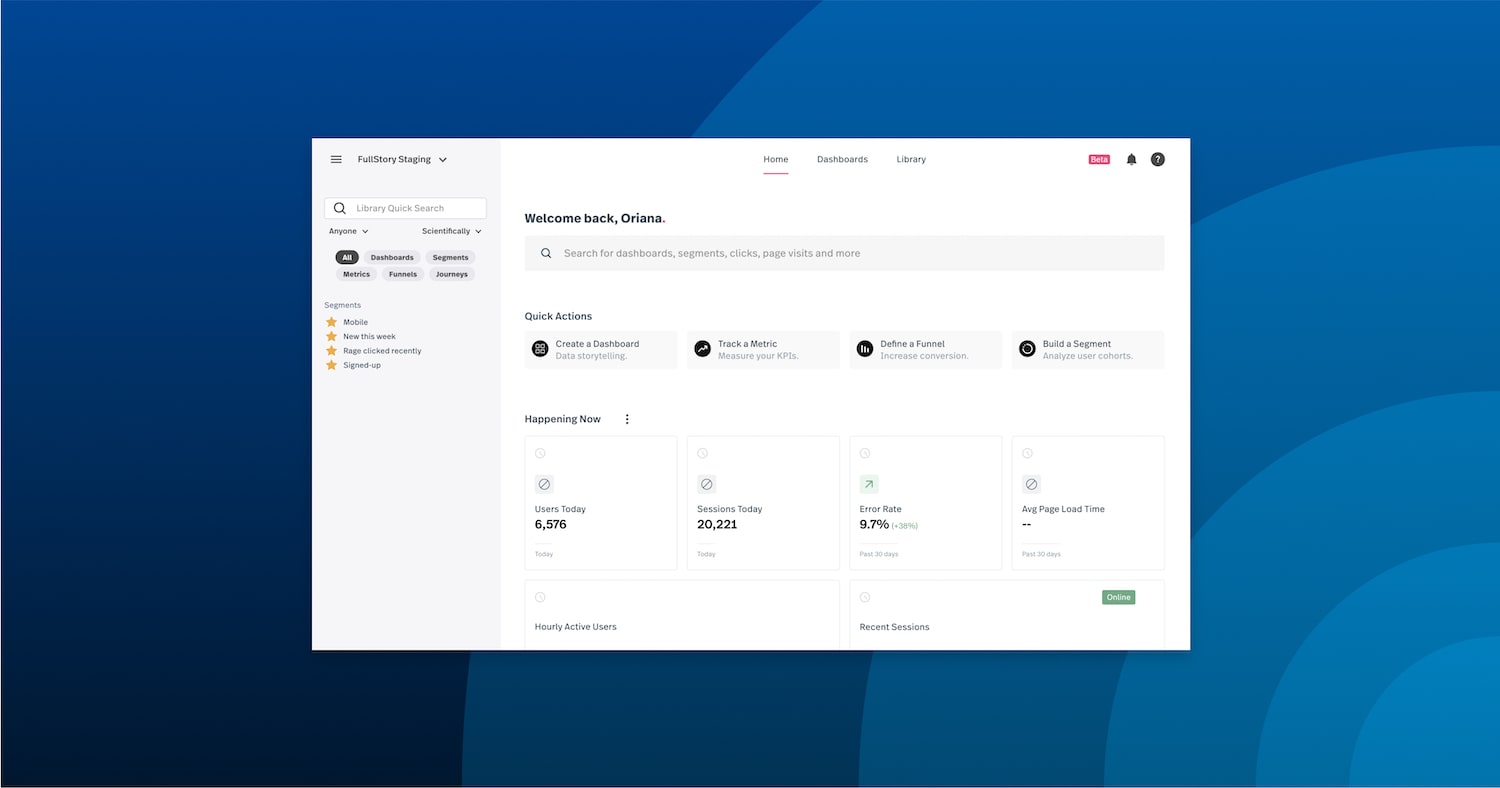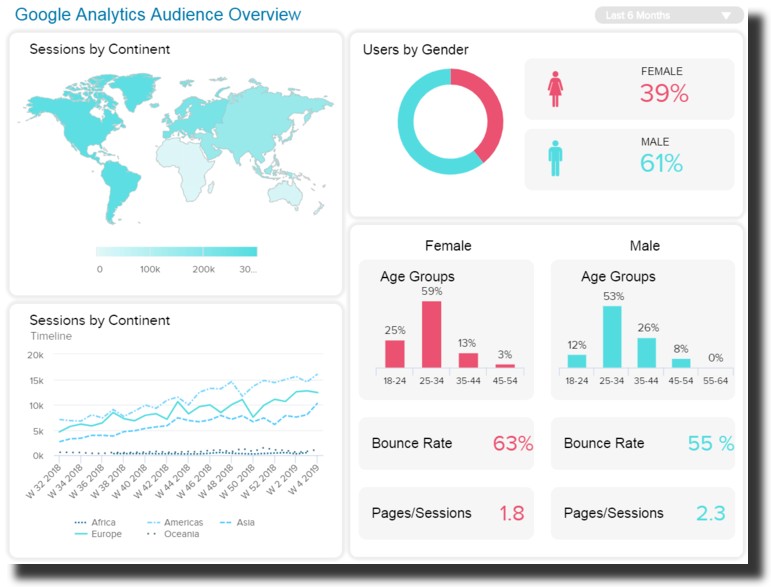Make Best Use Of Development: How Analytics Drive Better Approaches
By using data understandings, companies can fine-tune their operational strategies, expect market changes, and improve customer involvement. The difficulty exists not just in gathering data but in efficiently translating it to drive tangible end results.
Recognizing Information Analytics
Data analytics is an organized computational analysis of information that enables companies to reveal meaningful patterns and insights. This process incorporates a range of techniques, including statistical evaluation, anticipating modeling, and information mining, which collectively aim to change raw information right into workable information - Analytics. By utilizing these methodologies, organizations can make enlightened choices that are rooted in empirical evidence instead of instinct alone
The foundation of data analytics hinges on its capability to handle substantial amounts of details from diverse resources. This consists of organized information, such as data sources, and disorganized data, consisting of social media interactions and client responses. Via the usage of specialized software and tools, experts can remove and process this data efficiently, recognizing fads and relationships that may not be immediately obvious.
Recognizing information analytics also involves identifying the value of information quality and integrity. Precise and reliable information is essential for purposeful evaluation; therefore, organizations need to execute durable data governance techniques. The repetitive nature of analytics allows for continual refinement and enhancement of strategies, guaranteeing that companies remain nimble in the face of changing market dynamics and customer behavior.
Trick Benefits of Analytics

Among the key advantages of analytics is its capability to provide actionable understandings. Organizations can quickly evaluate huge quantities of data, uncovering patterns that might not be immediately noticeable. This helps in anticipating market changes and adapting techniques accordingly. In addition, analytics promotes a society of evidence-based decision-making, decreasing reliance on intuition and guesswork.
One more substantial benefit is enhanced client understanding. Analytics tools allow businesses to segment their target market, track customer behavior, and individualize advertising efforts. This targeted technique not just boosts consumer engagement but also drives greater conversion prices.

Implementing Analytics Techniques
To completely recognize the benefits of analytics, organizations need to embrace organized approaches for application. This begins with clearly defining goals that align with broader organization objectives. By establishing certain, measurable results, organizations can concentrate their analytics initiatives on areas that produce the greatest roi.
Next, organizations must prioritize information governance to make sure the honesty and security of the data being examined. This involves establishing up protocols for data collection, storage, and gain access to index while adhering to relevant policies. Making certain top quality information is crucial for generating meaningful insights.
In addition, fostering a culture of data-driven decision-making is vital. This requires training workers to analyze analytics findings and encouraging partnership across divisions. When teams comprehend the value of analytics, they are more probable to integrate understandings into their daily procedures.
Finally, companies ought to frequently assess and fine-tune their analytics techniques. The landscape of data and modern technology is constantly developing, and remaining adaptable will certainly enable organizations to utilize brand-new tools and methods effectively. By carrying out these organized methods, organizations can optimize the effect of their analytics initiatives and drive sustainable development.
Tools for Effective Analysis
Efficient analysis relies upon a range of devices that assist in the extraction of insights other from information - Analytics. These devices can vary from easy spread sheet applications to sophisticated machine learning systems, each offering a distinct function in the analytical process
Information visualization software application, such as Tableau and Power BI, plays a critical role in transforming complex datasets right into reasonable graphical depictions. These devices make it possible for analysts to determine trends and patterns promptly, enabling even more educated decision-making.
Analytical evaluation software, like R and SAS, offers advanced capabilities for performing comprehensive evaluations, consisting of regression, theory screening, and anticipating modeling - Analytics. These features empower companies to draw purposeful conclusions from their information, identifying possible opportunities and risks
Additionally, data source management systems such as SQL and NoSQL data sources offer the essential facilities for storing and inquiring huge quantities of information successfully. They make certain that data is organized and accessible for analysis.
Lastly, business knowledge systems incorporate different information resources, supplying an extensive sight of organizational efficiency. By using these devices effectively, services can click over here improve their analytical abilities, allowing them to establish approaches that optimize growth and enhance total performance.
Situation Research Studies of Success
Successful organizations commonly take advantage of data analytics to drive impactful strategies, as confirmed by numerous significant instance researches. By utilizing these insights, Netflix has successfully customized its content recommendations, resulting in raised individual involvement and subscriber retention.

In addition, Starbucks uses data analytics to determine optimum shop areas and improve its product offerings. By examining consumer demographics and buying patterns, Starbucks efficiently determines high-potential markets and customizes its food selection to local preferences, driving sales and client commitment.
These instance studies show that reliable utilization of information analytics can result in strategic advantages, fostering technology and development within companies across various sectors.
Verdict
In verdict, the integration of analytics into business strategies substantially boosts decision-making procedures and promotes lasting growth. By leveraging data-driven understandings, organizations can determine trends, anticipate market changes, and optimize procedures. The reliable implementation of analytics devices further sustains dexterity and innovation, enabling companies to browse competitive landscapes with higher precision. Ultimately, a commitment to analytics not only drives instant performance enhancements yet additionally safeguards long-term success in an ever-evolving market.
Data analytics is an organized computational analysis of information that enables companies to uncover significant patterns and insights.Recognizing data analytics also entails recognizing the significance of information high quality and integrity. Trustworthy and exact data is vital for meaningful analysis; hence, organizations should implement durable data administration methods.Next, companies must focus on data administration to guarantee the honesty and security of the data being evaluated.Effective organizations commonly take advantage of information analytics to drive impactful approaches, as evidenced by a number of notable situation studies.